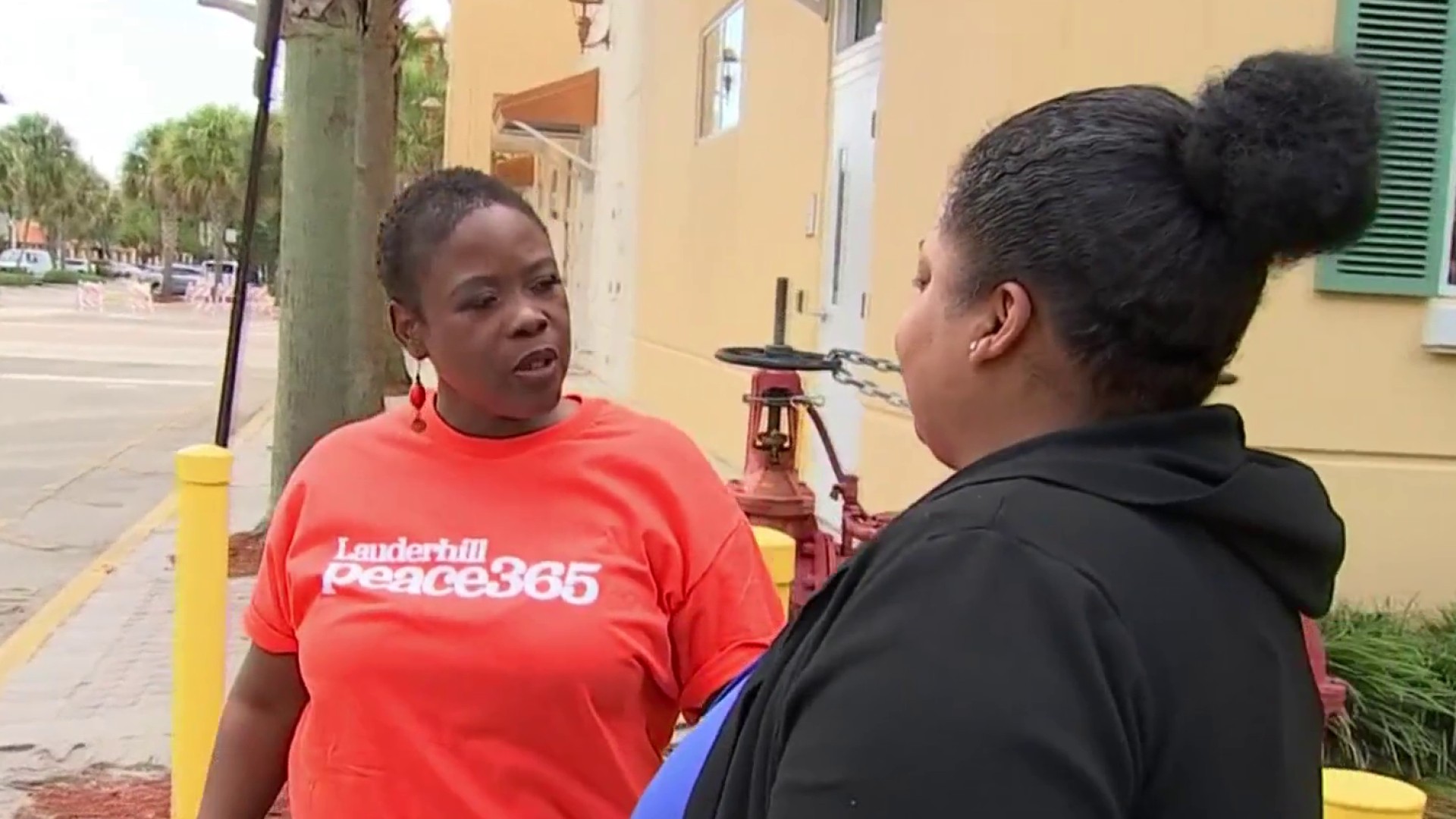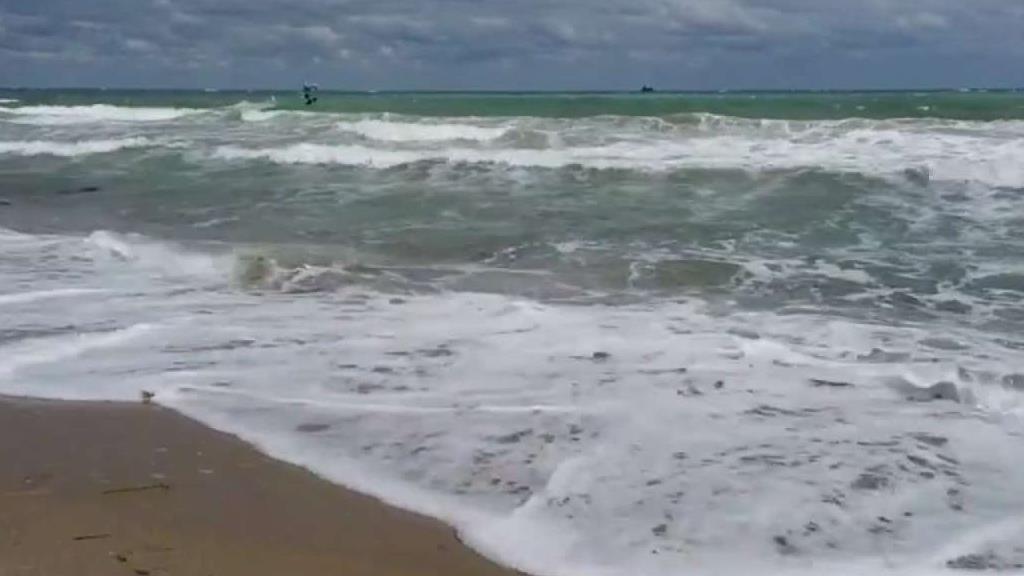The first class of astronauts from NASA’s Artemis program have moonwalked across the stage to graduate. One of them, Dr. Frank Rubio, hails from Miami.
The newly graduated class of astronauts will now begin careers in exploration that may shoot them into orbit on missions that can lead them to the International Space Station, or even to Mars.
Rubio, who is a married father of four children, has an extremely decorated resume. Before attending medical school to become a board certified family physician and flight surgeon, Rubio served as a helicopter pilot in the military, with dangerous deployments in Bosnia, Afghanistan and Iraq.
After graduating from the NASA program, Rubio is now eligible for mission assignment. Before he blasts off into space, we decided to get to know this hometown hero a little better.
How do you feel after graduating from NASA’s Artemis program?
“It’s been great. This is probably some of the more stressful stuff for us, being in front of the camera and talking to people like yourself. But at the same time, you know, we love to support the mission in this way. But I’d much rather be on a rocket or flying a jet. I admire you guys for doing this every day.”
Take us back to the beginning. Did you always want to be an astronaut?
Local
“No. I did not. I actually wanted to be a doctor. And it wasn’t until a buddy of mine who was selected in a previous class recommended that I try out that it really became a serious thought and an idea. The dream of being an astronaut is something I think every kid probably thinks about. For me, it just wasn’t in my realm of reality. And so, but the reality is that the job fits perfectly. The adventure. The science. The opportunity to represent humanity and something big, to be a part of a team that’s bigger than yourself. All of that really plays into stuff that I love and stuff that I loved about the Army and about medicine. And so, this kind of brings all of that together."
Did you have a moment while going through the program where you were said, “yes, this is where I’m supposed to be.” What was your “ah ha” moment?
"Yeah, I think the first time that you get in a spacesuit for the training in the neutral buoyancy lab and you have all these people there to support you and you realize that ‘hey, I’m learning how to use a spacesuit.’ I think that’s the first time that you, I know, kind of hits you. You know, flying a jet is a lot of fun, but it’s not too different from flying a helicopter, which I did a lot of in the military. All the academics were very challenging, but it’s also not too different from what medical school was like. So, I think the spacesuit was the one that was just so unique that was probably the “ah ha” moment for me."
Do you think your time in the military prepared you for NASA or possible space missions?
"Absolutely. You know, the one thing that the military does is give you plenty opportunities to learn new things. Puts you in uncomfortable situations. Puts you in areas that you’re just not an expert in. And I think those experiences are very important here ‘cause ultimately you have to learn to just be comfortable with the unknown and comfortable with things that aren’t perfect. And probably the single biggest thing is that the military focuses on teamwork and this is very much a team sport. You have to work with the ground. You have to work with the entire NASA organization to make the mission happen. And so, I think coming in with the mentality that the team is the most important thing is probably the single best attribute that the military helps us to learn."
You must have spent a lot of time with the other graduates that went through the NASA program with you. Did you build special bonds with any of them?
"It was really unique. I’ve been really blessed to be a part of some pretty amazing teams throughout my career. The difference here was that we became really good, strong friends right away. And now, they’re like my brother and sisters. We just know each other really well, really deep. They are people, every single one of them, that I would trust my life to. I hope they can say the same about me."
I read that you were born in Los Angeles, but you call Miami home. Why is that?
"Miami is where I did high school and those are your formative years. And so I think that’s why I associate so much with Miami. But L.A. was just as important to my life."
Do you visit often? When was the last time you made that trip?
"We went there for spring break in 2019. We still have cousins that live down there and we love to visit. We love the food. We love the water and just being down there to enjoy the area. It still feels like home when you get there."
What do you miss about Miami?
"The water is probably the single thing that I miss. Well, actually, that and the food. I really miss the food. Those white beaches and the crystal-clear water. I love scuba diving, snorkeling, spearfishing, all of those things. So yeah, those are the kind of things that I miss about home."
Lastly, what kind of advice would you give to kids dreaming of one day becoming an astronaut?
"You know what I would tell them? That anything is possible and do something that you love in your life. And I think that if you look at our class especially, we all have very different paths that led us here. But the single most important common factor is that we’re all doing things we love and that’s what allowed us to shine and to make a difference in our field. And so, if you’re doing anything only because you want to be an astronaut, then you’re probably not doing the right thing. Whereas, if you’re pursuing your passions and something you love, it’s going to allow you to stand out and those are the kind of people we are looking for."
Wait, one more thing. What’s next? You graduated the program, so do you just wait for a mission to go to space?
"We’ve been working within the astronaut office now. The first two years you focus pretty heavily on training, but now we’ve all transitioned to technical duties, where we just help support the overall mission. We’ll continue those duties until we get assigned to a mission. Once you get that assignment, you train for the mission for two more years. So, it’s a long road. For now, I’ll be focusing on my technical job and helping my officemates get to space."
Frank, thank you so much for speaking with me. Congratulations on graduating and good luck on your future missions into space.
"Thank you! It’s an honor to represent South Florida. Appreciate it."



